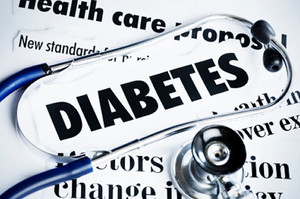For patients with type 1 diabetes, the quality of the insulin they take is a matter of life and death. The situation is similar for patients with type 2 diabetes. The question is what will these patients think about switching from their current brand-name insulins to new biosimilar versions? The question is important right now with the imminent arrival of biosimilar insulins on the market.
Very little is known about what patients with diabetes think of biosimilar insulins. Now, following a survey of over 3,000 patients with type 1 or type 2 diabetes in the US, healthcare providers can focus on the issues that are likely to arise if and when biosimilars become available in the country. In August 2014, the US Food and Drug Administration (FDA) granted Eli Lilly and Boehringer Ingelheim tentative approval for their new insulin glargine product [1]. The following month, the same product received European Commission approval [2].
In this latest survey, run by the diabetes-focussed consultancy Close Concerns, patients were asked whether they would switch to a less expensive biosimilar if it was approved by their healthcare provider [3]. They were given a choice of five responses: ‘definitely use’, ‘likely to use’, ‘unlikely to use’, ‘definitely not use’, or ‘I don’t know’.
Of 3,214 respondents, 27% (n = 864) said they would ‘definitely use’ a biosimilar and 39% (n = 1,250) said they were ‘likely to use’ a biosimilar. Only 13% (n = 424) said they were ‘unlikely to use’ biosimilars, with just 4% (n = 142) saying they would ‘definitely not use’ biosimilars. The remaining 17% of patients (n = 534) were not sure.
The survey population had an over-representation of type 1 diabetes patients compared with the diabetes population overall. Subsequent analysis of type 1 patients versus type 2 patients showed that type 2 patients expressed slightly more willingness to consider biosimilars. One third (n = 532) of type 2 patients said they would ‘definitely use’ biosimilars compared with 21% (n = 332) of type 1 patients. This may be because, while insulin is one of several medications available for type 2 diabetes, it is the sole option for type 1 diabetes. Also, patients with type 2 diabetes may be more keen to reduce the cost of their treatment, since they typically have other co-morbidities and medications.
Respondents were also asked to raise any questions they might have on this topic. Among questions related to cost, safety and effectiveness, several patients wanted assurance that any biosimilar would be exactly the same as their current brand of insulin. Unlike generics, biosimilars cannot be identical copies of the originator drug.
The authors of the survey conclude that, if insulin biosimilars are significantly cheaper and equally effective, most patients will accept them. However, since some patients who are otherwise willing to accept biosimilars also want them to be identical to their favoured brand, it may be difficult to persuade these patients to switch. It will be the role of manufacturers and providers to address the concerns of potential biosimilar users.
‘It is worth remembering’, write the authors, ‘that this is as much a matter of perception and psychology as it is one of biology and economics’.
Conflict of interest
The authors of the research paper [3] declared that they received no financial support for the research, authorship and/or publication of the article.
Close Concerns has ongoing business relationships with many companies in the diabetes care field. Please see www.closeconcerns.com/disclosure.php for a current list.
Editor’s Comment
If you would like to receive a PDF copy* of the Wilkins et al. paper [3], please send us an email.
*For profit organizations subjected to a fee
Related articles
Mylan starts phase III trials for biosimilar insulin glargine
Biosimilars applications under review by EMA – August 2014
References
1. GaBI Online - Generics and Biosimilars Initiative. FDA grants tentative approval for insulin treatment [www.gabionline.net]. Mol, Belgium: Pro Pharma Communications International; [cited 2014 Nov 7]. Available from: www.gabionline.net/Biosimilars/News/FDA-grants-tentative-approval-for-insulin-treatment
2. GaBI Online - Generics and Biosimilars Initiative. European approval for biosimilar insulin [www.gabionline.net]. Mol, Belgium: Pro Pharma Communications International; [cited 2014 Nov 7]. Available from: www.gabionline.net/Biosimilars/News/European-approval-for-biosimilar-insulin
3. Wilkins AR, Venkat MV, Brown AS, Dong JP, Ran NA, Hirsch JS, et al. Patient perspectives on biosimilar insulin. J Diabetes Sci Technol. 2014;8(1):23-5. [Epub ahead of print]
Permission granted to reproduce for personal and non-commercial use only. All other reproduction, copy or reprinting of all or part of any ‘Content’ found on this website is strictly prohibited without the prior consent of the publisher. Contact the publisher to obtain permission before redistributing.
Copyright – Unless otherwise stated all contents of this website are © 2014 Pro PharmaCommunications International. All Rights Reserved.








 0
0











Post your comment